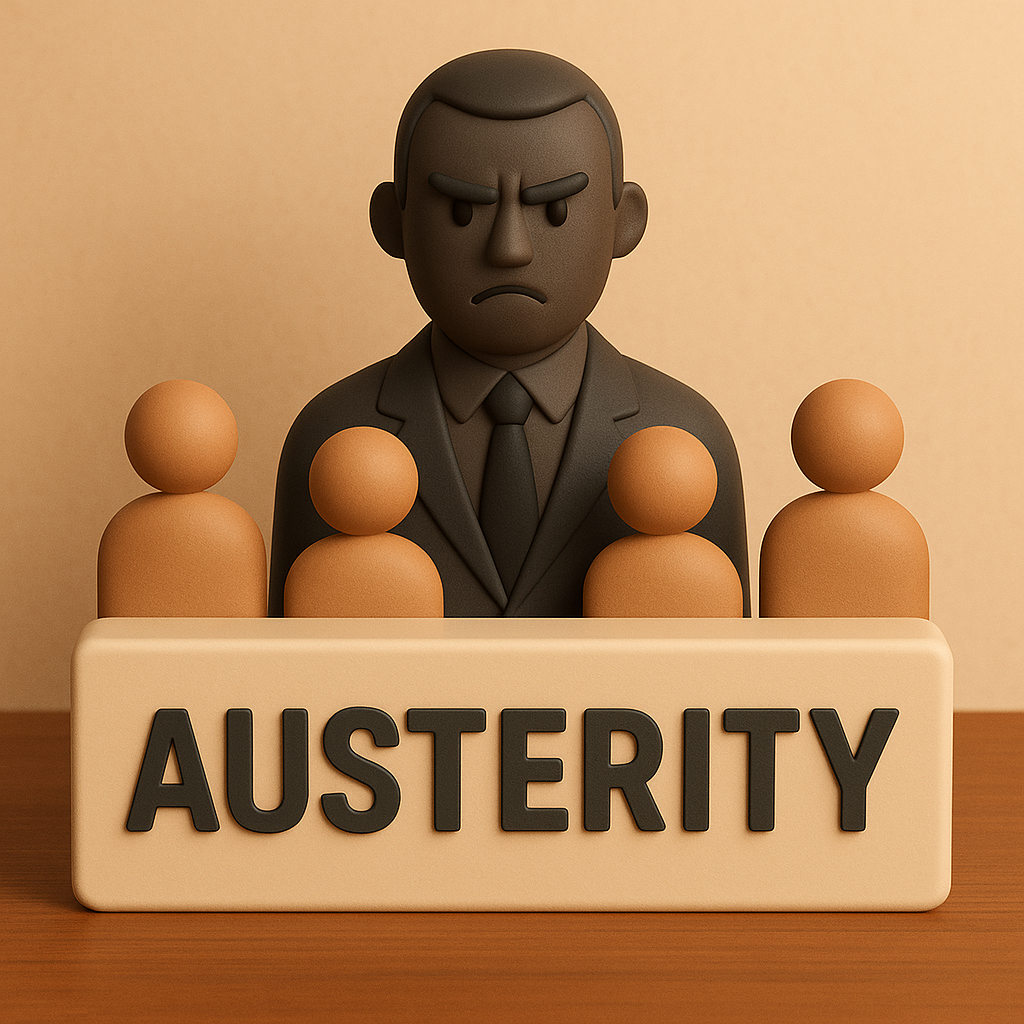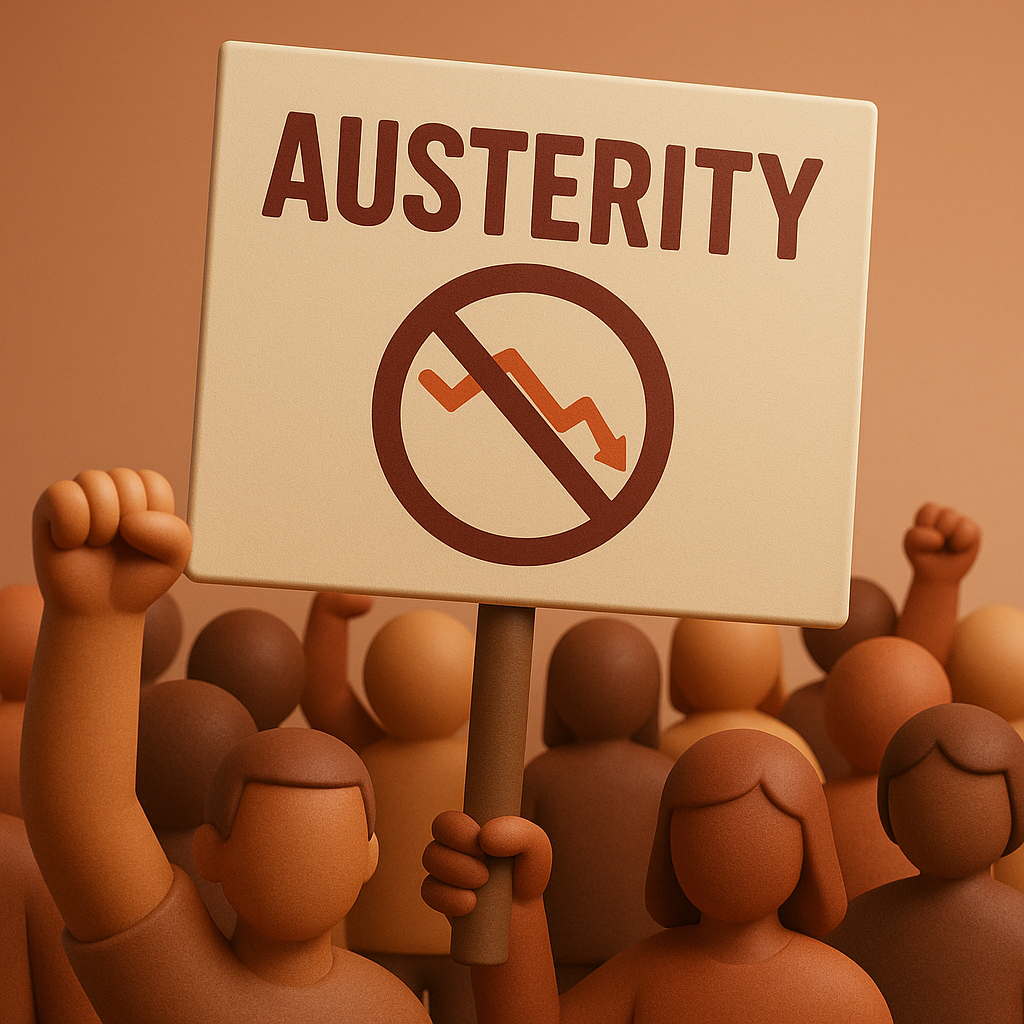Austerity
Definition
Austerity is a noun. Generally, it denotes sternness or severity of manner or life; plainness and lack of luxury; and, in economics and public policy, a program of spending cuts, tax increases, or other measures intended to reduce budget deficits and debt.
Parts of Speech
- Noun (usually uncountable; plural austerities in some senses)
Pronunciation
American English
- IPA: /ɔˈstɛrəti/ (also /ɑˈstɛrəti/)
- Respelling: aw-STER-uh-tee
British English
- IPA: /ɔːˈstɛrɪti/
- Respelling: aw-STER-i-tee
Etymology
Middle English austerite via Old French austerité, from Latin austeritās “severity, harshness,” from austerus “harsh, severe,” ultimately from Ancient Greek austērós “harsh, rough, severe.”
Derivatives
- austere (adjective): severe or strict; plain and unadorned
- austerely (adverb): in an austere manner
- austereness (noun, rare): the quality of being austere
- austerities (plural noun): hardships; strict measures; severe self-denials
- austerity measures (fixed phrase): government policies aimed at fiscal consolidation
- anti-austerity (adjective/noun): opposing austerity policies; a movement against such policies
Synonyms
- (manner) severity, sternness, rigor, strictness
- (lifestyle/style) frugality, asceticism, plainness, simplicity, spartanism
- (policy) belt-tightening, retrenchment, fiscal consolidation, stringency
Antonyms
- (manner) leniency, indulgence, laxity
- (lifestyle/style) luxury, opulence, extravagance
- (policy) stimulus, expansion, largesse
Usage
General: Refers to severity or plainness in conduct, lifestyle, or design. “Monastic austerity shaped their daily routine.”
Economic/policy: Common in public discourse to describe deficit-reduction programs that curb public spending and/or raise taxes. “Following the crisis, the government adopted austerity to stabilize debt.”
Style/design: Can denote minimalism or lack of ornament. “The room’s austerity was softened by natural light.”
Usage note: In economic contexts the term is politically charged; supporters emphasize fiscal discipline, while critics highlight social costs (e.g., reduced services, slower growth). Specify the measures or outcomes to avoid ambiguity.
Related Terms
- Austere: Severe or plain in manner or appearance.
- Ascetic: Practicing severe self-discipline and abstention.
- Frugality: Careful or sparing use of resources.
- Retrenchment: Reduction of costs or spending.
- Contractionary fiscal policy: Government policy that reduces aggregate demand via spending cuts or tax increases.
- Belt-tightening: Informal term for living or governing with fewer resources.
Detailed Definitions
Noun
- Sternness or severity of manner, attitude, or judgment — strict self-discipline or rigor.
- Example: “Her mentor’s austerity pushed the team to higher standards.”
- Extreme plainness and simplicity of style or living — absence of luxury or ornament.
- Example: “They embraced an aesthetic of austerity in the cabin’s design.”
- (Economics/Politics) A policy or condition of reduced public spending, higher taxes, or both, to decrease budget deficits and public debt.
- Example: “Protests erupted in response to new austerity measures in the budget.”
- (Countable, often plural) Acts of strict self-denial or hardships imposed.
- Example: “War-time austerities included rationing and price controls.”
austerity








